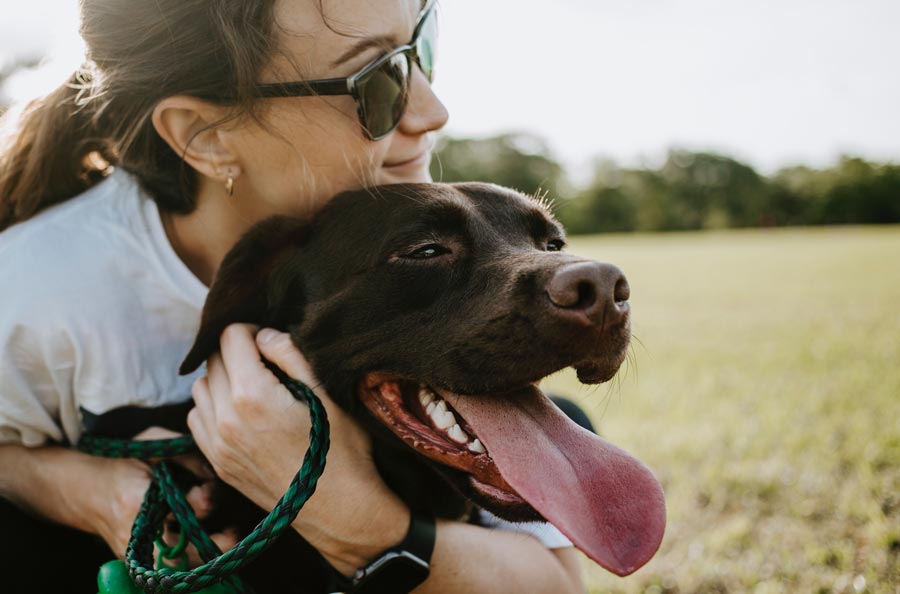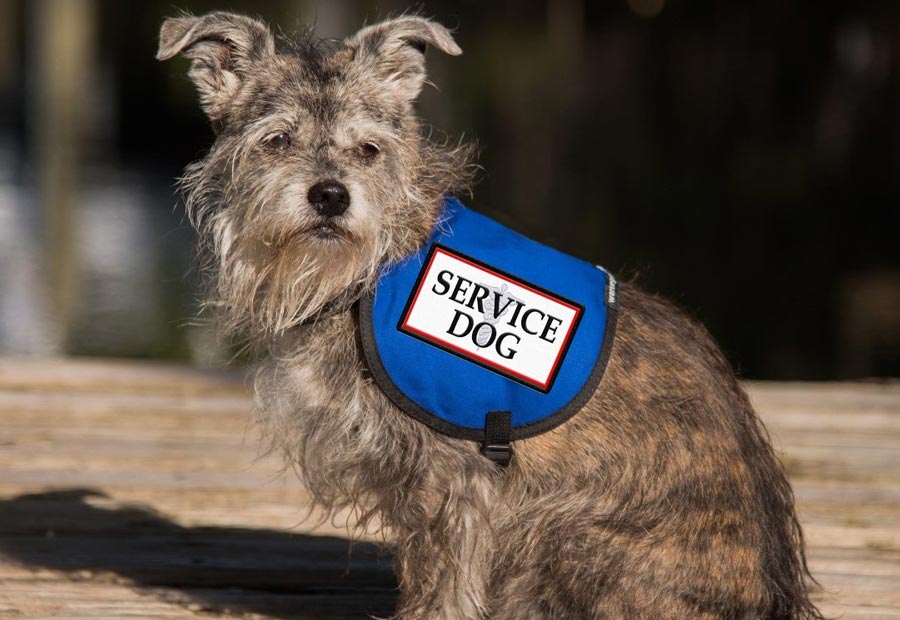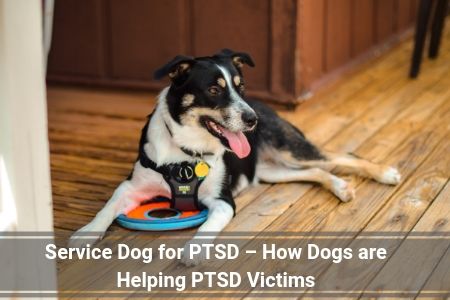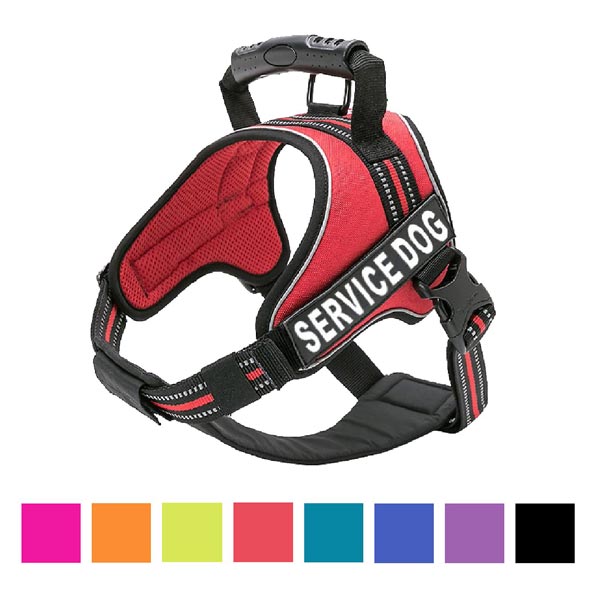Many people suffer from both physical and or mental issues that require a service dog to support them in their attempt to live normal lives. Under the American Disabilities Act (ADA), a service animal has to be taught to work or perform a job or task that supports a disabled person. This would make such a dog considered a service animal versus a therapy or emotional support dog. One group of individuals who benefit from these trained service dogs are those who suffer from PTSD (Post Traumatic Stress Disorder). This group of individuals has been traumatized through various life events such as post-traumatic stress. This trauma can lead them to have panic attacks, mood swings, as well as social difficulties. Such people simply struggle to have the normal life they used to have prior to the traumatizing event.
Dogs that are trained in the area of PTSD specialize in helping a person who has had a substantial, negative life-changing eventoccur in their life. These service dogs support their handlers through not only doing jobs or tasks but also by being emotional support as well. As they are with their person at almost all times though their support capacity, these dogs have all the same rights that their owners do when it comes to housing and access to public areas. Service dogs are specially trained by people in Assistance Dogs International and other organizations that follow strict standards that are outlined by the ADI to train these service animals to meet the specific needs of those with PTSD.
What services do PTSD dogs offer?
These particular service dogs who are trained to help people with the disability of PTSD are also used to reduce stress and help a person interact socially. They can:
These dogs can complete goal-oriented tasks as required but actually,do further unintentional work by changing the chemistry in their handlers’ brain through enhancing the production of oxytocin. This chemical in the brain promotes bonding and trust and is heightened when people have interaction with babies, dogs, and other creatures that are cute and evoke a feeling of pleasure. This ability to heighten oxytocin through the use of a service dog helps people with PTSD beyond the tasks the dog also performs. The release of oxytocin eases a handler’s anxiety and helps them respond more positively to therapy, offering further support from these well-trained animals.
Effectiveness of Service Dogs treating PTSD

There are many studies that show a strong, effective link between the interaction of a service dog and those with physical disabilities. This same effectiveness between a service dog and a person with PTSD is now being studied as well. The Department of Veterans Affairs (the VA) and Department of the Defense both strongly suggest that service dogs are substantial support for traumatized members of the armed forces. However, their current studies will need to be expanded to include an understanding of the connection between psychology and service dogs. Beyond these early positive conclusions, it is understood that PTSD dogs are supportive and offer meaningful mental health improvement for members with PTSD.
PTSD Dogs support more people than just veterans
Many people assume that service dogs supporting those with PTSD are working solely with veterans. But in reality, service dogs can be extremely helpful for those who have PTSD that is not grounded in negative military experience. These events can include sexual assault, robbery, car accidents, or other life-based traumas. However, the reality is that Military veterans have easier access to service dogs than civilians. This doesn’t mean civilians don't have access, though. They can also get a service dog through organizations that use the ADI standardization test. The other option is to adopt a pet through a shelter and learn to train them without a professional. If they can be trained to show they are acting and providing a service that assists with a disability, they can be considered a service dog and no major expenses will be incurred.
Something needs to be noted is that PTSD service dogs, however helpful, do not hold the same status as other service dogs under the VA. They are offered less financial support when it comes to vetting and training. But both military and civilians do have to expand access as more is discovered about PTSD and what works in battling it. As more research proves the reality of PTSD and what treatments are beneficial, the service dog will get more financial support and be able to accomplish better support for those with PTSD.
Products to support a PTSD dog

While service dog trainers will often help outfit a service dog, if you are training them yourself or simply need items for their arrival, check below. Although there is no requirement for a service dog to be "labeled", it is often helpful and will save the handlers having to explain repeatedly what their dog does. The patches, harness, etc. are self-explanatory.
Service Patches - a good product that has Velcro for easy removal when you choose to. Helpful for making your dogs work obvious but removable as well.
Saddlebags for your service dog that will allow patches with their service designation to be added or taken off.
Dog Harness is a good item for your service dog, allowing the addition and deletion of designations as needed.
Final Thoughts
Dogs are great animals who are more than able to help PTSD victims. Whether they are used in a physical capacity, as mental support or in other ways, they offer much to the victim who needs a service dog, allowing them to engage and fully enjoy life once again. What started slowly, has grown into a substantial service dog support system. Do your research, choose a breed that is beneficial to the handler, and this starts on the way to a more stable PTSD victim.









